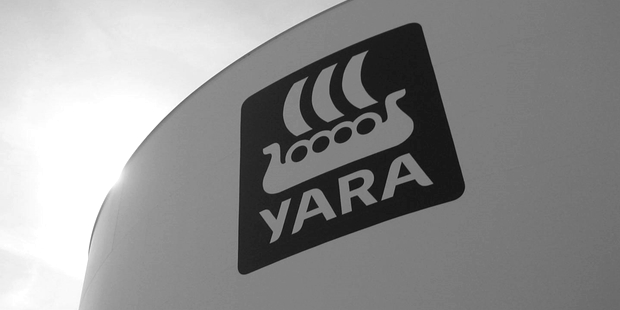In June Yara initiated production and distribution of DEF – at its facility in Belle Plaine, Canada. The plant successfully produced and shipped its first Diesel Exhaust Fluid (DEF, known as AdBlue in Europe) under Yara’s Air1 brand this summer.
The plant will increase Yara’s capacity to supply fleets, retailers and distributors in Canada, as well as strategic areas in the US. The launch aligns with Yara’s ‘Creating Impact’ business strategy – to invest in products and solutions that address major global issues related to environmental challenges, such as lowering emissions and improving air quality.
Nitrogen oxide NOx emissions are a major source of smog, they damage air quality levels and public health in urban areas around the world. Increasingly stringent exhaust regulations demand improved solutions in order to comply with environmental laws. Yara has developed Air1 to help reduce NOx emissions from heavy-duty diesel vehicles such as trucks, buses, tractors or other non-road mobile machinery. Air1 complies with the highest industry standards in AdBlue.
Yara-BASF considering a world-class ammonia plant in the USA
Yara International revealed it was considering a tie-up with BASF to build a “world scale” ammonia plant in the US, as it revealed the pressure on the global nitrogen fertilizer market from soaring Chinese exports. Norway-based Yara, the world’s biggest nitrate fertiliser manufacturer, said that it was still discussing with BASF the details of the plant, which will be based in the US Gulf, although “location, capacity and other project parameters” are still under discussion. The deal would give BASF greater control over its US supply chain for ammonia, while boosting Yara’s presence in a North American market in which it is a relatively small player.
In fertilizer, North America accounted for 573,000 tonnes of sales in the July-to-September quarter, only 9.7% of the group total, with the traditional core European market taking 2.14m tonnes. Latin America, where Yara has boosted its presence through the purchase of Bunge’s Brazilian fertilizer business, became the group’s most important market, with volumes of 2.38m tonnes.
The proposal comes amid a dash by nitrogen companies to expand in the US, where the growth of shale gas has provided the energy-intensive industry with a low-cost source of a key raw material, natural gas, although some plants, including those in China, use coal as an alternative.
CF Industries and Egypt’s Orascom Construction Industries have also unveiled plans to build nitrogen capacity in the US, although concerns over the extent of the dash for gas has prompted Agrium to row back on its own expansion in the sector.
However, Yara estimated that world growth in nitrogen capacity outside China was scheduled to grow by 1.8% a year in 2013-17, once closure of obsolete plants was taken into account – a rate behind annual demand growth of 2.1%.
Beyond capacity additions in Algeria, where one plant opened last month and a further two are under construction “with unclear start-up timing…. there are limited greenfield capacity additions outside China scheduled for completion in the next two-to-three years”, Yara said.
Source: agrimoney.com
